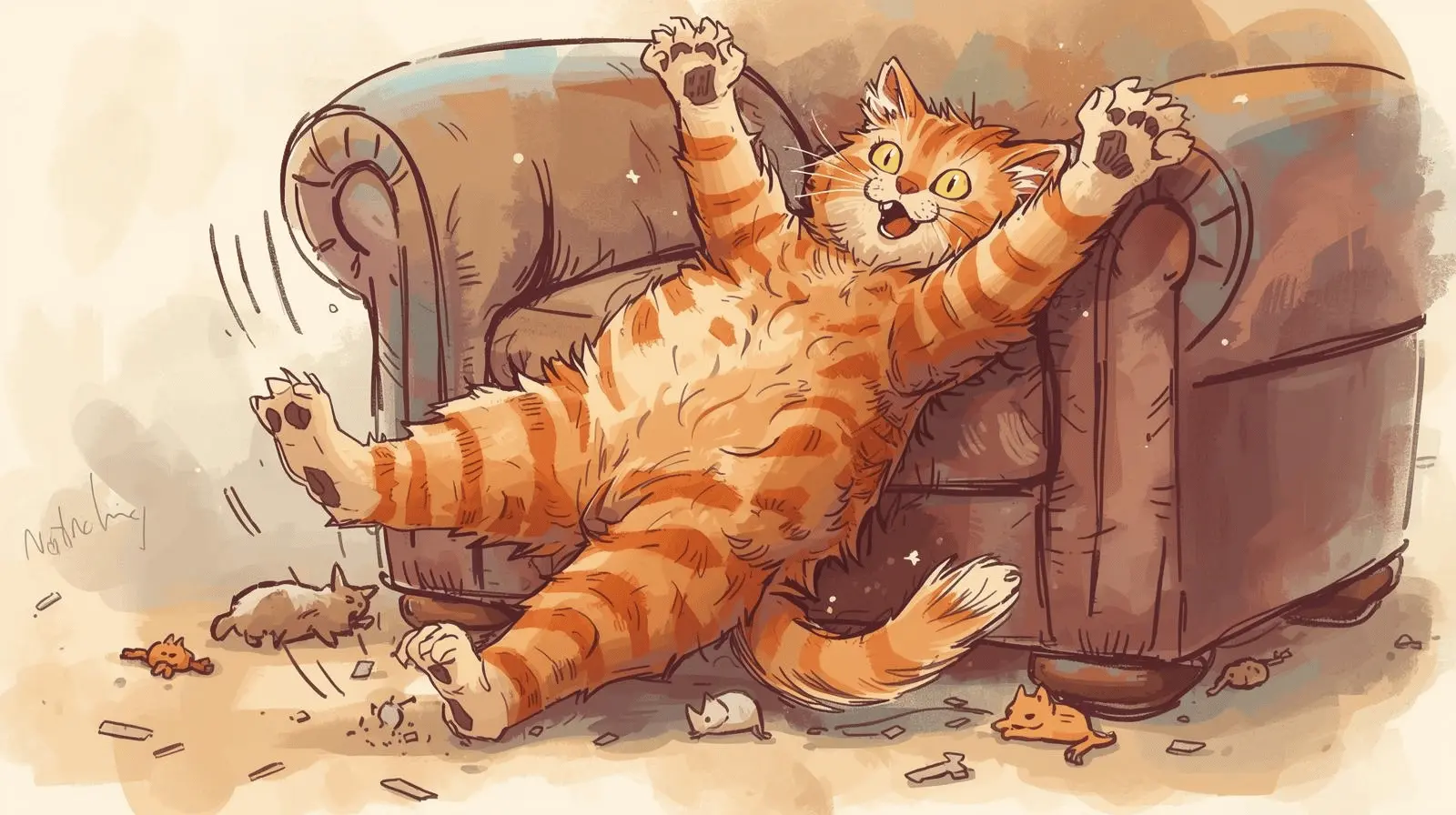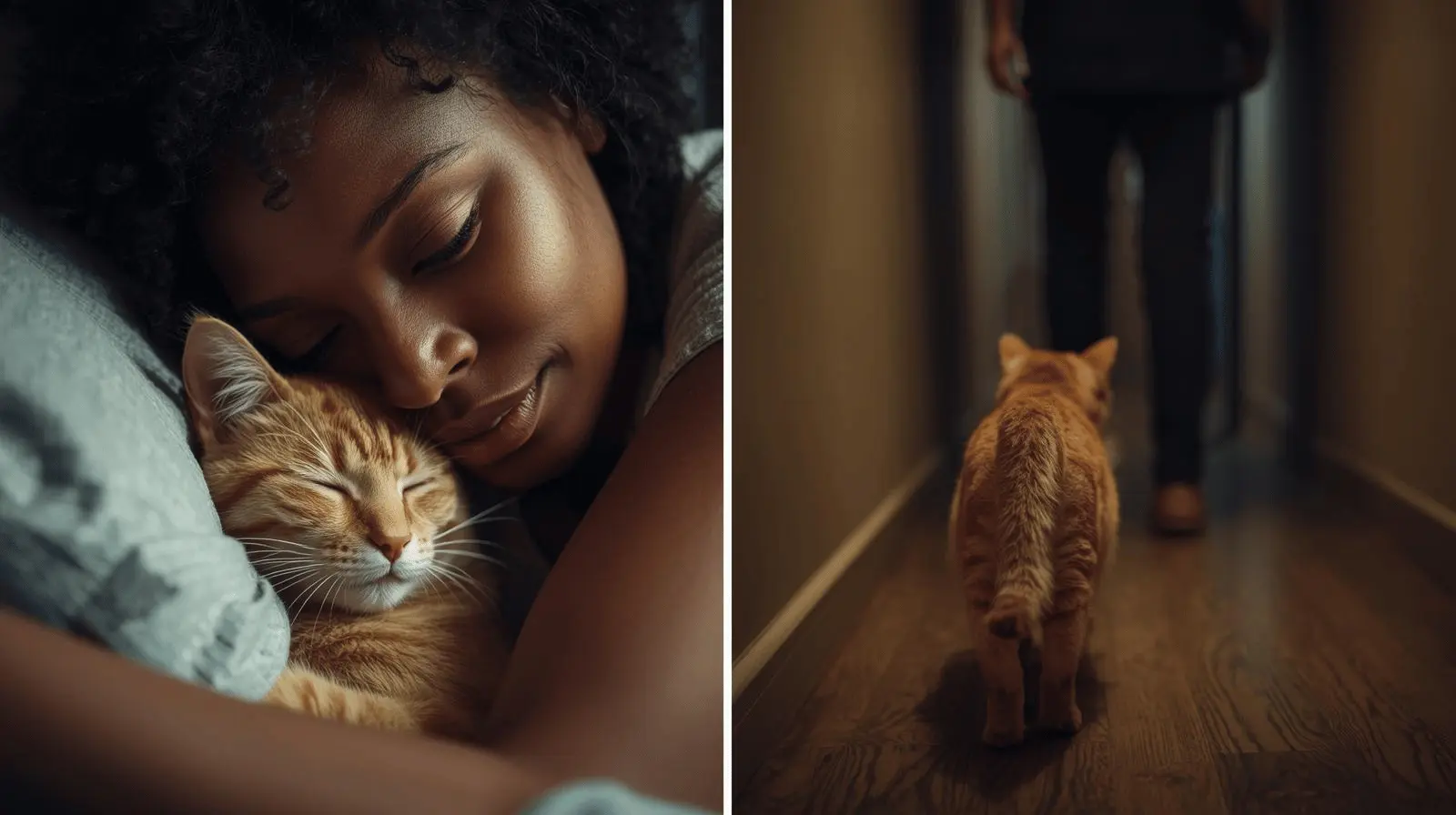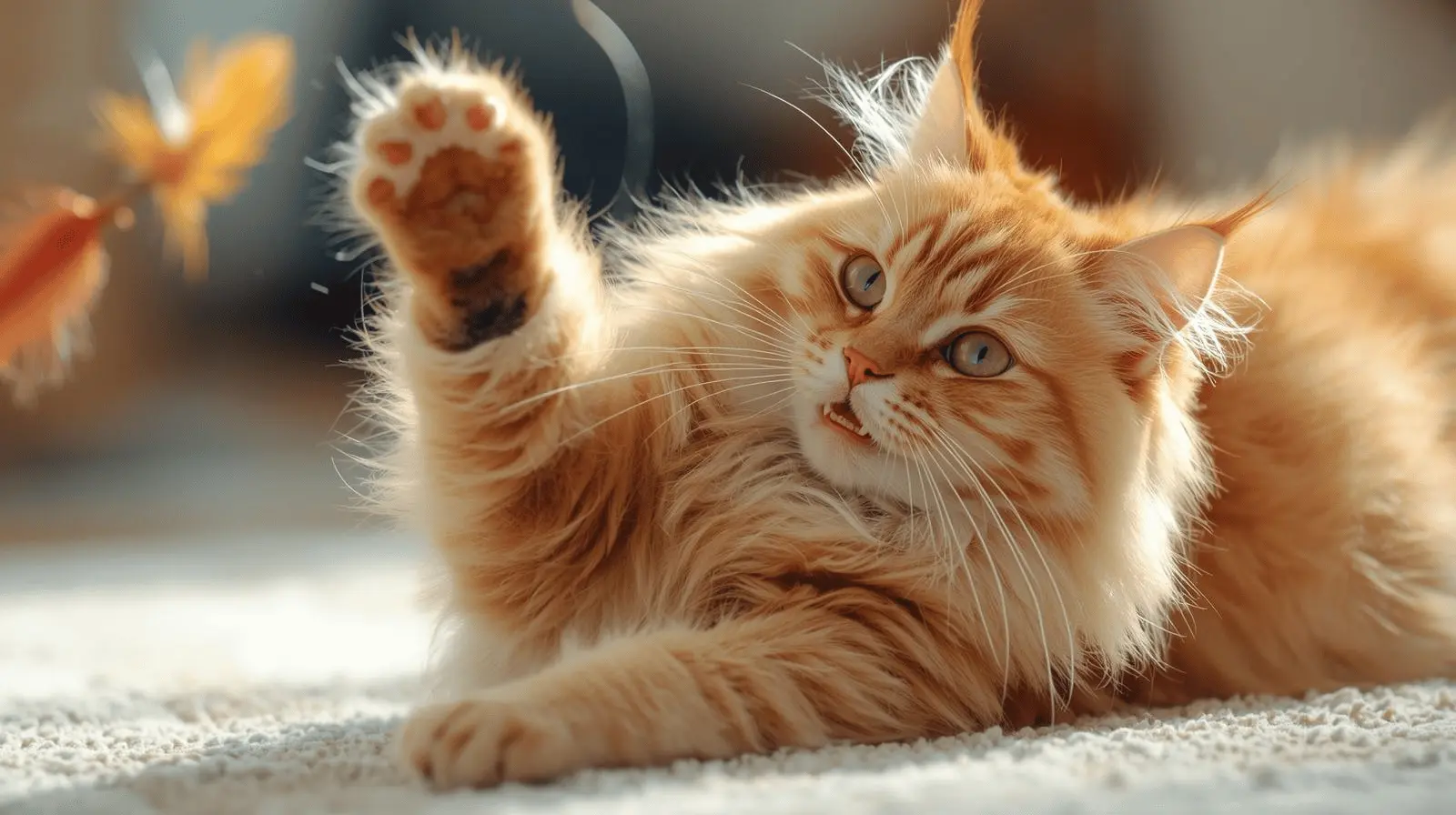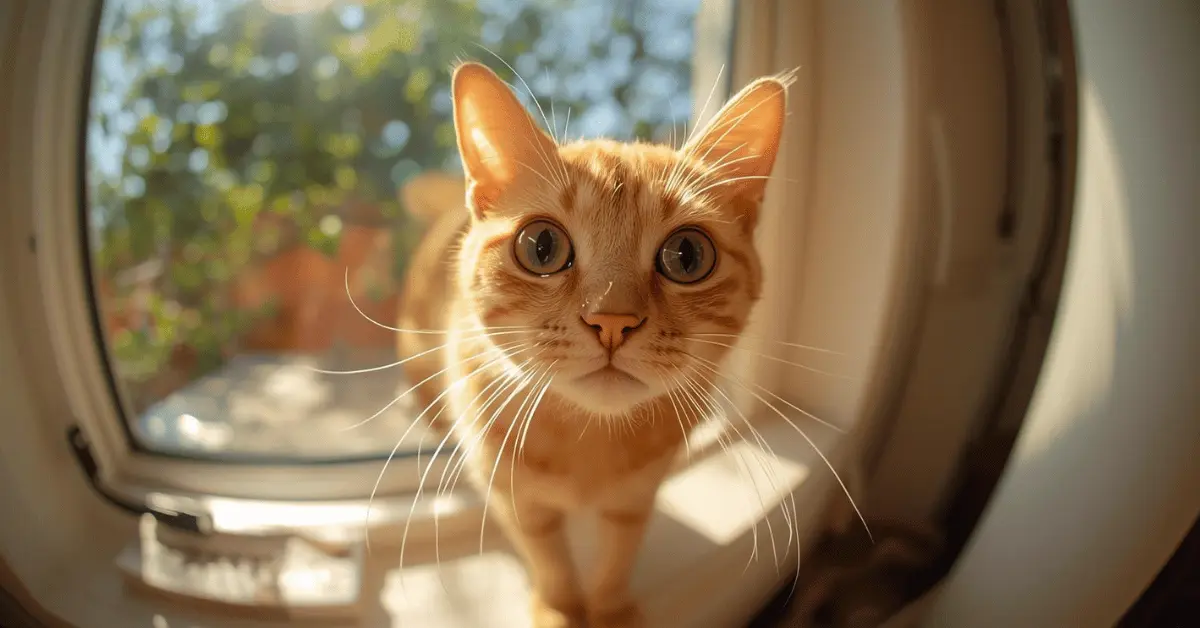Orange cats are instantly recognizable. Their fiery fur, expressive faces, and bold personalities make them some of the most talked-about felines.
But along with their popularity comes plenty of stereotypes. People often describe them as goofy, weird, lazy, or even less intelligent than other cats.
The Genetics of Orange Cats
The story of orange cats begins with genetics. Their coat color isn’t just a random splash of pigment — it’s tied to how their DNA works.
Why Most Orange Cats Are Male
Around 80% of orange cats are male. This happens because the orange color gene sits on the X chromosome.
Males only need one copy of this gene to turn orange, while females need two. That makes orange females much rarer.
This male bias can influence personality. Male cats are generally more social and easy-going, which may explain why orange cats are often seen as outgoing.
Coat Colour and Personality
Scientists have studied whether fur colour impacts cat personality. While some owners believe coat colour predicts behaviour, the evidence is thin.
What’s more likely is human perception. Because orange cats stand out visually, their quirks are more noticeable — making people think they act differently.
Are Orange Cats Dumber?

One of the most common stereotypes about orange cats is that they’re not very smart. But is there any truth to it?
The Myth of Low Intelligence
The idea that orange cats are dumber than others is a myth. Intelligence in cats isn’t measured by fur colour.
All cats are capable of problem-solving, learning, and adapting. Orange cats are no exception.
Why They Seem Goofy
So why do orange cats get called “dumb” so often? The answer lies in their playful behaviour.
They are more likely to tumble off furniture, chase shadows, or get into clumsy situations. But instead of showing a lack of intelligence, this actually highlights their curiosity and confidence.
Related Posts
- 7 Reasons Your Cat Stares at Nothing
- 7 Weird Cat Behaviours You Shouldn’t Ignore
- Why Cats Suddenly Zoom Around at 3 AM?
- 7 Weird Cat Behaviours After Eating Explained
- Why Do Cats Cry Like Babies at Night?
Common Traits of Orange Cats
Orange cats don’t just look unique — they often behave in ways that make them stand out from other felines.
Friendly and Outgoing
Many orange cats are affectionate and social. They often seek out attention, cuddle with their humans, and welcome strangers easily.
This makes them wonderful family pets and ideal for people who want a companion that enjoys interaction.
Playful and Mischievous
Orange cats are curious explorers. They climb into boxes, knock over objects, and investigate every corner of the house.
Orange Tabby Cat Personality

Since almost all orange cats are tabbies, their personality is often described through the lens of this coat pattern.
The Tabby Influence
Tabbies are known for their distinct stripes or swirls. But their coat isn’t just for looks — it has become linked to a personality stereotype of its own: playful, outgoing, and loving.
Orange tabbies in particular are remembered for their bold, expressive presence.
Dog-Like Loyalty
Many orange tabby owners describe their cats as dog-like. They may follow people around the house, greet family members at the door, or even play fetch.
This loyalty makes them stand out compared to more independent cats.
Vocal and Expressive
Orange tabbies also tend to be vocal. They use meows, chirps, and trills to get attention or communicate their needs.
This constant chatter only adds to their dramatic — and often hilarious — personality.
Why Orange Cats Seem Weird
Orange cats have earned a reputation for being quirky or unusual. But where does that come from?
Clumsy Curiosity
These cats often get into trouble because of their boldness. They may leap before they look, fall off shelves, or get stuck in tight spaces.
This clumsy curiosity makes them look silly, but it’s part of their adventurous nature.
Attention-Seeking Antics
Orange cats also crave attention. They might climb onto laptops, interrupt video calls, or meow insistently until they get noticed.
Stereotypes in Pop Culture
Orange cats aren’t just pets — they’re cultural icons. From cartoons to internet fame, they’ve been cast into roles that shaped how people see them.
Garfield and the Lazy Cat Trope
Garfield, the world’s most famous orange cat, is known for his love of lasagna, naps, and sarcasm.
Internet Memes and Viral Fame
On TikTok, Reddit, and YouTube, orange cats dominate viral content. Their playful accidents and dramatic personalities make them natural internet stars.
Orange Cats in History and Folklore
The fascination with orange cats isn’t new. They have a long history in stories, culture, and symbolism.
Symbols of Good Fortune
In some cultures, orange cats are associated with luck and prosperity. Their golden coats symbolize warmth, happiness, and abundance.
This positive image contrasts with darker superstitions tied to black cats.
Caring for Orange Cats
Owning an orange cat means embracing both their quirks and their needs. A little extra attention can help them thrive.
Encourage Play and Exploration
Provide toys, climbing trees, and interactive games to keep them busy. This prevents boredom and channels their energy into healthy activities.
Balance Affection and Independence
While orange cats love being around people, they still need quiet time. Create cozy resting spots where they can relax undisturbed.
The Human Side of Orange Cat Stereotypes
At the heart of orange cat myths is something very human: the way we interpret animal behaviour.
Why People Project Traits
We often project human traits onto cats. Because orange cats are bold, vocal, and clumsy, we label them as “weird” or “dumb.”
In reality, these are just normal cat behaviours amplified by personality and visibility.
Why People Love the Myth
Instead of harming their reputation, these stereotypes make orange cats more popular.
Their image as silly, lovable clowns makes people cherish them even more.
The Truth About Orange Cat Behaviour

Orange cats aren’t actually dumber, lazier, or weirder than other cats. Their reputation comes from genetics, perception, and pop culture exaggeration.
In truth, they are affectionate, playful, and entertaining companions. Their quirks make them memorable, and their bold personalities ensure they never fade into the background.
If you welcome an orange cat into your home, expect laughter, affection, and a furry friend who will always keep you on your toes.
Frequently Asked Questions
Are orange cats friendly?
Yes. Orange cats are often described as friendly, affectionate, and social. Many enjoy spending time with humans and are quick to warm up to strangers, making them excellent family pets.
Why do orange cats act weird?
Orange cats often seem weird because of their playful and curious personalities. They may act clumsy, demand attention in funny ways, or get into unusual situations.
Are orange cats really dumber than other cats?
No. Orange cats are not less intelligent than other cats. What people interpret as “dumb” behaviour is usually curiosity and boldness.
Do orange cats have unique personalities?
While no two cats are alike, orange cats are often described as outgoing, vocal, and affectionate. Their bold colouring and expressive personalities make them stand out compared to other cats.
Why are most orange cats male?
Around 80% of orange cats are male because the gene for orange fur is carried on the X chromosome. Male cats only need one copy of the gene, while females need two, making orange females less common.
